- English
- Sales & Support:+86-15015013003
| Place of Origin: | China |
| Brand Name: | MSTPACK |
| Certification: | BPI Certificate, BRC, DIN, ABA |
| Model Number: | PCB040 |
| Minimum Order Quantity: | 10000 |
|---|---|
| Price: | US$ 0.02-0.55 / pcs |
| Packaging Details: | Carton |
| Delivery Time: | 10-15days |
| Payment Terms: | L/C, T/T, Western Union |
| Supply Ability: | 100000 tons/year |
Compostable coffee bags are packaging materials designed to be environmentally friendly by breaking down into organic matter in a composting environment. These bags are typically used to package ground coffee or coffee beans and are an alternative to traditional plastic or non-compostable packaging.
Here are some key features and information about compostable coffee bags:
MATERIAL: | Kraft Paper / PLA | COLOR: | Up to 10 colors |
|---|---|---|---|
| SIZE: | Customized | SURFACE HANDLE: | Gravure Printing or Digital Printing |
| FREE SAMPLES: | Available | TYPE: | Stand Up Pouch, Flat Bottom Pouch, Side Gusset Pouch are available |
| USAGE: | Coffee, Tea, Snack, Chocolate, Cookie, Candy, Nuts, Other Food | SEAL & HANDELING: | Zipper Top |
| PORT OF SHIPPING: | Jiangmen | FAST DELIVERY: | 7-10 Work Days |
| HIGH LIGHT: | Compostable Coffee Bags | ||
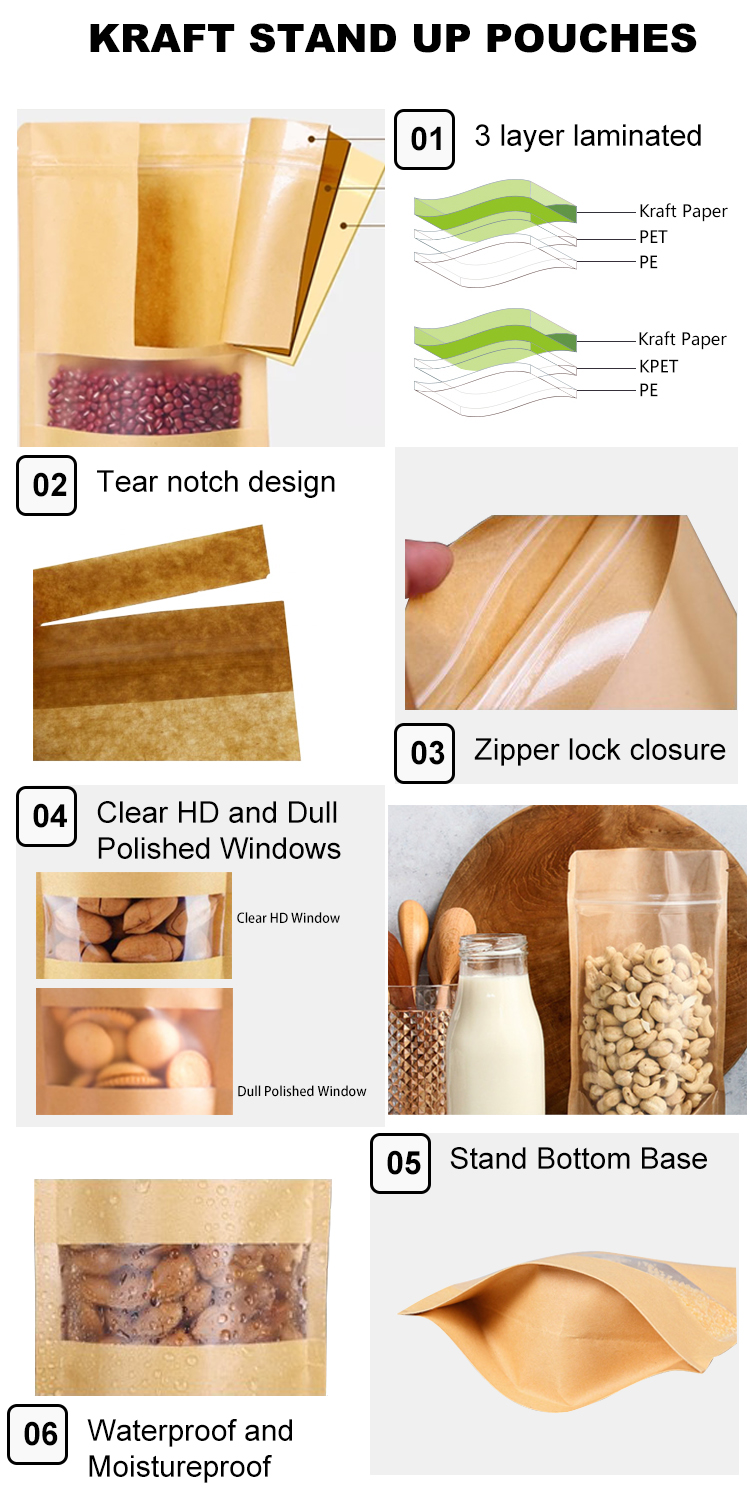
Compostable materials are substances or products that have been specifically designed and manufactured to break down into natural, non-toxic components when subjected to the conditions of a composting process. Composting is a natural biological process that transforms organic matter into nutrient-rich soil conditioner, which can be used to improve soil health and promote plant growth. Compostable materials play a vital role in reducing waste and environmental impact, as they offer a sustainable alternative to traditional non-biodegradable materials like plastics.
Compostable materials can be derived from various sources, including:
Some bioplastics: Certain bioplastics, like PLA (polylactic acid), can be compostable if they meet the necessary criteria.
Compostable materials often undergo testing and certification processes to ensure they meet established compostability standards. Common standards include ASTM D6400 and EN 13432. Products certified by reputable organizations like the Biodegradable Products Institute (BPI) are more likely to compost effectively.
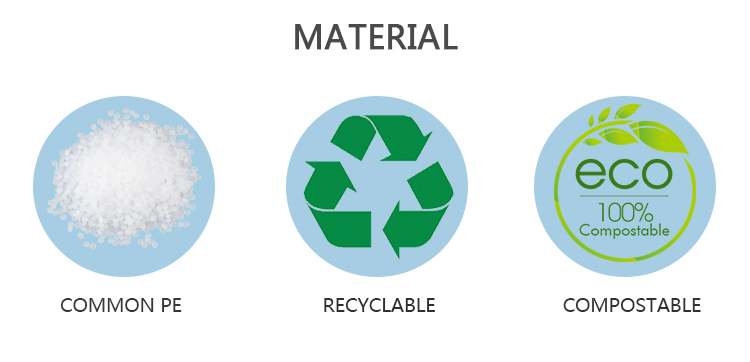
Compostable materials require specific conditions to break down effectively, including:
These conditions are often met in industrial composting facilities but may not be consistently achievable in home composting setups.
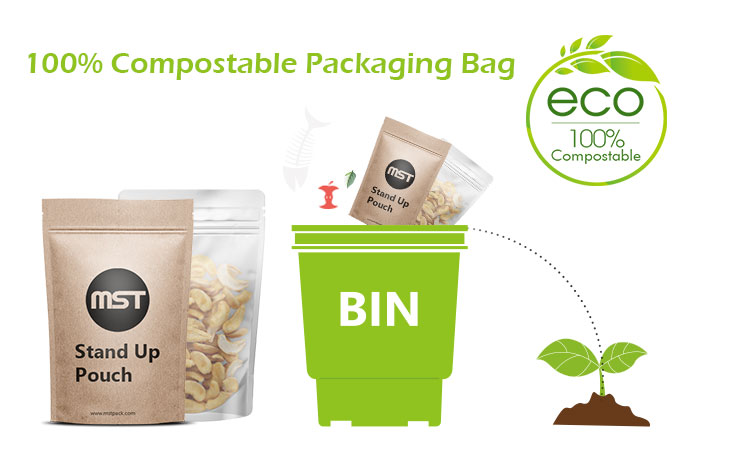
In summary, compostable materials represent an environmentally responsible choice for packaging and products. They are designed to break down into natural components, enriching the soil and reducing the environmental impact associated with traditional non-biodegradable materials. However, it's crucial to follow proper disposal guidelines and ensure that compostable materials are processed in a suitable composting environment to maximize their benefits.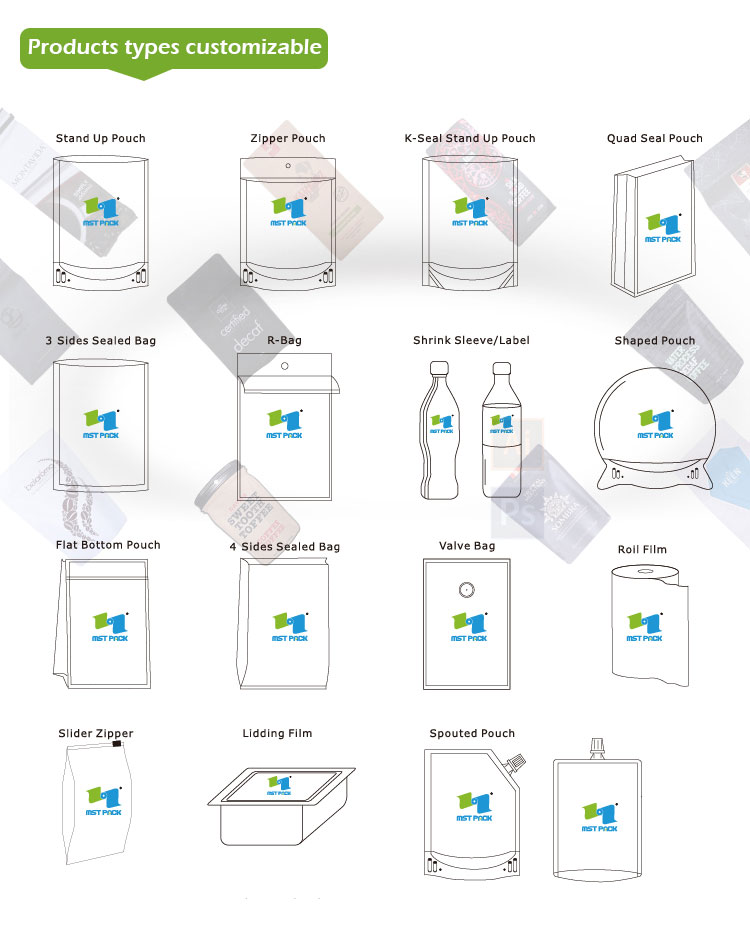
Compostable Coffee Bags Environmentally Friendly: Compostable coffee bags are considered more environmentally friendly than traditional plastic bags because they do not contribute to plastic pollution in landfills or oceans. They reduce the carbon footprint associated with coffee packaging.
Compostable Coffee Bags Certifications: Look for bags that have been certified as compostable by reputable organizations like the Biodegradable Products Institute (BPI) or meet compostability standards like ASTM D6400. Certification ensures that the bags will break down in a composting facility.
Compostable Coffee Bags Moisture and Aroma Barrier: Many compostable coffee bags are designed with a moisture and aroma barrier to keep the coffee fresh. This barrier helps maintain the quality and flavor of the coffee.
Compostable Coffee Bags Printing and Labeling: These bags can be printed with eco-friendly, water-based inks and labels that are also compostable. This ensures that the entire package is suitable for composting.
Usage Instructions: It's important to follow the manufacturer's instructions for compostable coffee bags. They may need specific conditions, such as a commercial composting facility, to break down properly.
When it's time to dispose of the compostable items, follow these steps:
a. Remove any non-compostable components (e.g., stickers, plastic labels).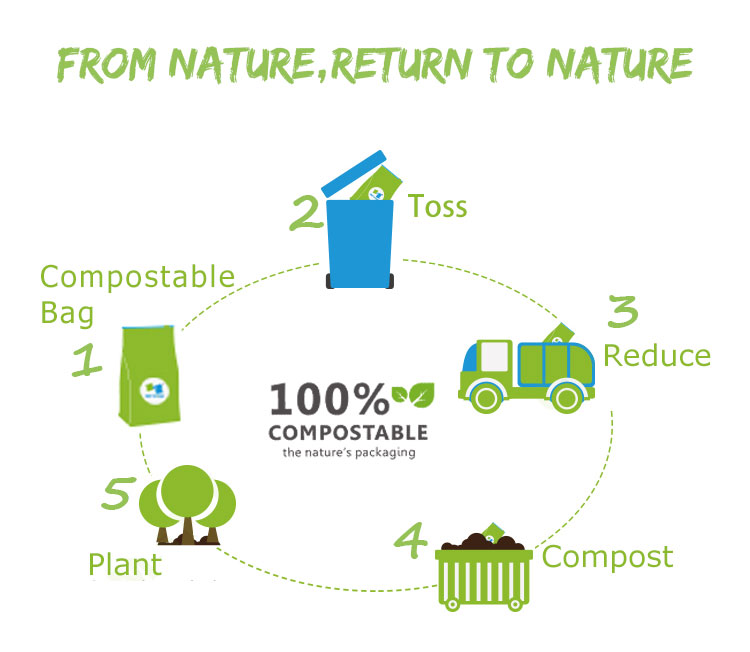
b. Tear or cut the items into smaller pieces if necessary.
c. Place them in your compost pile or bin, ensuring they are well-mixed with other compostable materials.
Compostable Coffee Bags Storage: Store compostable coffee bags in a cool, dry place away from direct sunlight to maintain their integrity until you're ready to use them.
Compostable Coffee Bags Disposal: After using a compostable coffee bag, you can either compost it in a commercial composting facility or check if it's suitable for home composting. Some compostable materials break down more effectively in industrial composting settings.
Compostable Coffee Bags Biodegradable vs. Compostable: Note that "biodegradable" and "compostable" are related but distinct terms. Biodegradable materials break down over time but may not always break down into non-toxic components. Compostable materials are designed to break down into nutrient-rich compost.
Compostable Coffee Bags Cost: Compostable coffee bags may be slightly more expensive than traditional plastic bags, but many consumers are willing to pay a premium for eco-friendly packaging.
It's essential to check the specific product details and certifications when purchasing compostable coffee bags to ensure they align with your environmental goals and composting capabilities. Proper disposal and adherence to composting guidelines will help maximize the environmental benefits of these bags.
Address: Rm603. Yuanyang Building, No. 1008 of Heshan Avenue, Shaping, Jiangmen, Guangdong, China. Compostable coffee bags, biodegradable coffee bags, resealable coffee bags are made by coffee bags factory China